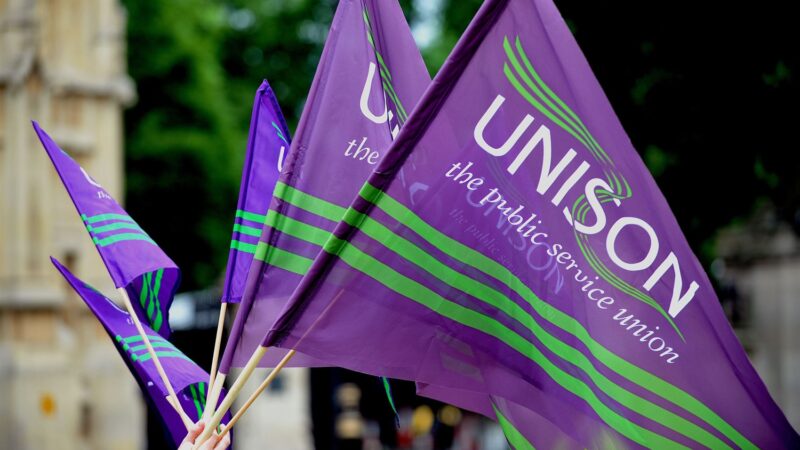
The election of Christina McAnea as UNISON’s new general secretary is historic: the UK’s largest union will now be led by a woman for the first time. This is particularly appropriate as around three quarters of UNISON members are women. The development is also good news for the Labour leadership and its supporters in the wider movement, as it strongly suggests that the union will maintain the approach to the party that was taken by Dave Prentis.
While McAnea told LabourList during the campaign that she was “slightly bemused” by accusations of being the right-wing candidate in the race, the victor was backed by the outgoing general secretary. The chief endorsement of rival Roger McKenzie, on the other hand, came from Jeremy Corbyn. He would have been expected to take the union in a different direction, at least in its relationship with Labour.
McKenzie’s hostility towards the party leadership should not be overstated – he describes Angela Rayner as a “really, really good friend” – but in October he told us: “I’ve been a member of the Labour Party since 1981, and there’s been only one of the leaders during the whole time that I’ve been a member that I could absolutely say I was a big supporter of, and that’s Jeremy Corbyn.”
The assistant general secretary ultimately secured over 10% of the vote, and McAnea’s main rival was in fact Paul Holmes, who won over 33%. Backed by John McDonnell, he was even more obviously the candidate who would break with the Prentis era, campaigning on the promise that he would deliver “real change” as “the members’ candidate”.
Many critics of the Labour leadership will be looking closely at the UNISON result announced today, which has already been highlighted by them as both a huge missed opportunity and a warning sign. Three left candidates ran – McKenzie, Holmes and Hugo Pierre – and their combined vote share added up to a majority. Could they have won the election had a single candidate been put forward to oppose McAnea? It cannot be assumed that they would have won, but they’d have had a better chance of doing so under the first-past-the-post system used.
UNISON is not the only major union offering a significant chance for the Corbynite left to gain or lose power, with GMB and Unite also due leadership changes. The former is expected to be a two-horse race, but the latter will not be. Steve Turner secured the United Left nomination, yet Howard Beckett questioned the result of that contest-within-a-contest ballot and will also be running, along with Sharon Graham.
Again, Unite’s race could see three from the left stand against an opponent with politics they dislike far more than they disapprove of each other’s politics, because Gerard Coyne will launch a bid, too. One well-placed source tells LabourList that it is “very unlikely” the former challenger to Len McCluskey will make the ballot, as this requires the nominations of over 100 branches and his base in the West Midlands has been “dismantled”. But the concern is nonetheless being expressed by ordinary party and union members on the left, who will be keen to see whether lessons are learnt.




More from LabourList
‘Tackling poverty should be the legacy of Keir Starmer’s government’
‘The High Court judgment brings more uncertainty for the trans community’
‘There are good and bad businesses. Labour needs to be able to explain the difference’